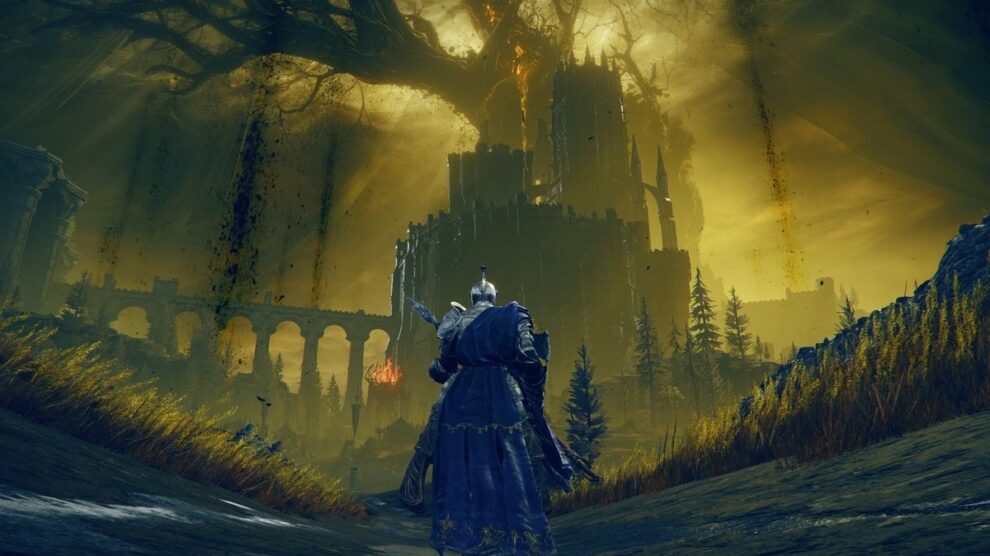Hidetaka Miyazaki’s comments on the difficulty in Elden Ring and its upcoming expansion, Shadow of the Erdtree, offer valuable insights into FromSoftware’s game design philosophy. This approach has not only defined their games but has also significantly influenced the broader gaming industry. Let’s explore the implications of these statements and their impact on game design, player experience, and the industry as a whole.

The Role of Difficulty in FromSoftware Games
Difficulty as a Core Experience
Miyazaki’s assertion that challenge is fundamental to FromSoftware games highlights several key points:
- Difficulty is not merely a setting but an integral part of the game’s design and narrative
- The challenges are carefully crafted to create specific emotional responses in players
- Overcoming these obstacles is meant to be a rewarding and memorable experience
The Psychological Impact
The emphasis on creating a sense of achievement through difficulty taps into important psychological principles:
- Overcoming challenges triggers the release of dopamine, creating a sense of satisfaction
- Difficult games can foster a growth mindset, encouraging players to learn and improve
- The shared experience of overcoming tough challenges can build community among players
Difficulty and Commercial Success
Elden Ring’s Market Performance
With 25 million copies sold, Elden Ring’s success challenges some conventional wisdom about game accessibility:
- Demonstrates that there is a significant market for challenging games
- Suggests that difficulty, when well-implemented, can be a unique selling point
- Highlights the importance of aligning game design with the intended player experience
Niche Appeal vs. Mass Market
Miyazaki’s comments about not compromising on difficulty raise interesting questions:
- How does a game balance staying true to its vision while appealing to a broad audience?
- Can a game be both niche in its approach and achieve mainstream success?
- What role does marketing and community building play in the success of challenging games?
Shadow of the Erdtree: Raising the Stakes
Escalating Challenge
The promise of “the toughest bosses FromSoftware has ever created” sets high expectations:
- Indicates a commitment to pushing the boundaries of game design
- Suggests confidence in the player base’s skills and desire for greater challenges
- Raises questions about how difficulty can be escalated without becoming frustrating
Gating Content through Difficulty
Requiring players to defeat an optional boss to access the expansion is a bold design choice:
- Creates a sense of exclusivity and achievement for accessing the new content
- Potentially limits the audience for the expansion
- Reinforces the game’s identity and sets clear expectations for players
The Broader Impact on Game Design
Influence on Other Developers
FromSoftware’s success with difficult games has had a ripple effect across the industry:
- The rise of “Souls-like” games as a recognized subgenre
- Increased willingness among developers to create more challenging experiences
- Debates within the industry about balancing difficulty and accessibility
Player Expectations and Skill Development
The popularity of challenging games like Elden Ring may be shaping player behavior:
- Potentially raising the overall skill level of the gaming community
- Creating a subset of players who specifically seek out difficult experiences
- Influencing how players approach problem-solving and persistence in games
Criticisms and Counterarguments
Accessibility Concerns
The emphasis on difficulty has faced criticism from accessibility advocates:
- Arguments that high difficulty can exclude players with certain disabilities
- Calls for more robust difficulty options or assist modes
- Debates about whether adjustable difficulty compromises artistic vision
Balancing Frustration and Reward
There’s a fine line between satisfying challenge and off-putting difficulty:
- Risk of player burnout or abandonment if challenges feel insurmountable
- Importance of fair and well-designed difficulty rather than artificial challenge
- Need for clear feedback and learning opportunities within challenging sections
Conclusion: The Art of Crafting Challenge
Hidetaka Miyazaki’s comments on the difficulty in Elden Ring and Shadow of the Erdtree provide valuable insights into FromSoftware’s design philosophy. This approach, which places challenge and the sense of achievement at the core of the player experience, has proven remarkably successful both critically and commercially.
The success of Elden Ring demonstrates that there is a significant audience for games that prioritize difficulty and the satisfaction of overcoming challenges. However, it also raises important questions about accessibility, player expectations, and the balance between artistic vision and commercial appeal.
As the gaming industry continues to evolve, the impact of FromSoftware’s approach to difficulty will likely be felt for years to come. Developers and players alike will grapple with questions of how to create and engage with challenging experiences that are both satisfying and accessible.
Ultimately, the discussion around difficulty in games like Elden Ring reflects broader debates about the nature of games as an art form, the role of challenge in entertainment, and the diverse needs and desires of the gaming community. As we look forward to Shadow of the Erdtree and beyond, these conversations will undoubtedly continue to shape the future of game design and player experiences.










Add Comment